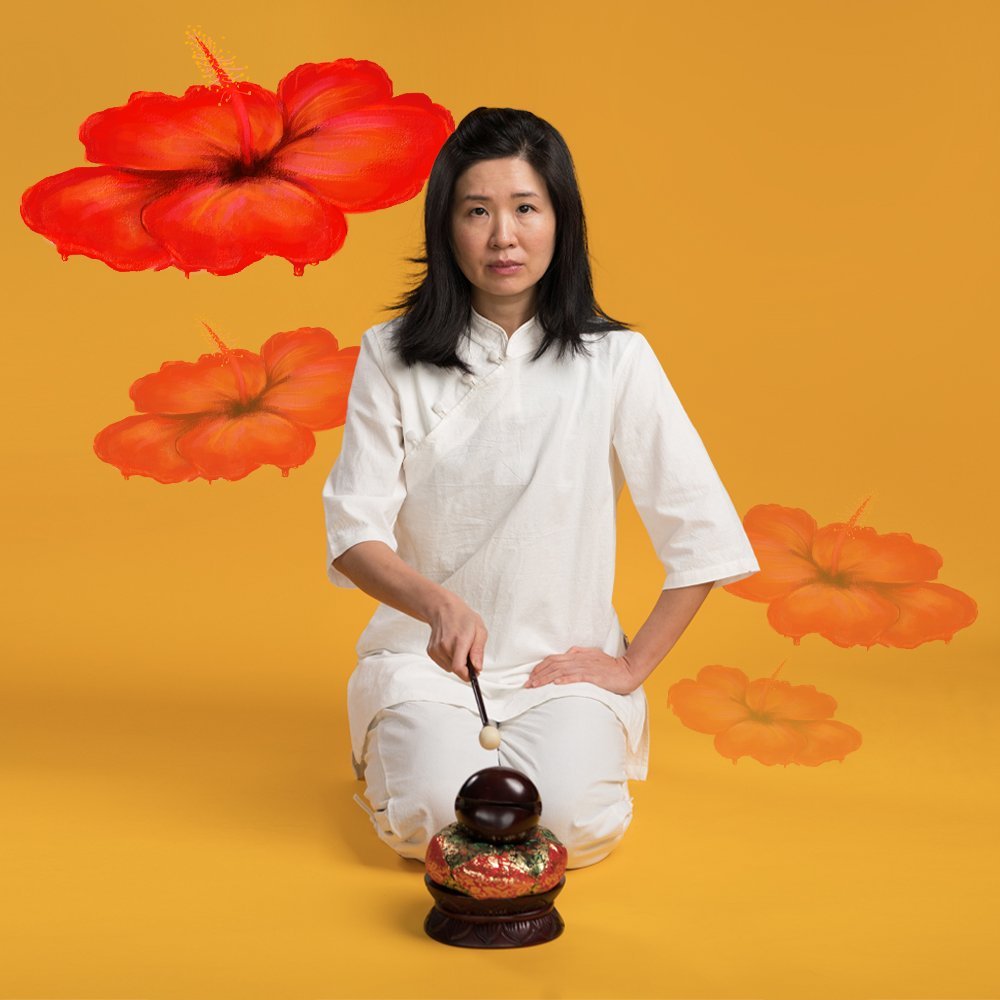

"I always wanted to be a writer, this was my chance to pursue my passion."
So she grabbed the opportunity, settled in New Zealand seven years ago and enrolled in English literature and creative writing classes.
"I wanted to write so that’s what I did."
In those classes she began to write about her life and that of her mother and two grandmothers Ah Mah and Por Por telling of their journeys spanning World War 2 and Hong Kong’s postwar colonial society.
"I’ve been writing about the story in various ways throughout university."
That continued as she began her PhD in creative writing only this time the stories came out in play form.
"I think its quite apt. As a one-woman show I play me my mum and my grandmothers."
This was slightly problematic for the self-confessed introvert who just wants to write books, as she soon realised the story was too personal for her to pass on.
"I couldn’t imagine having someone else play me or my mum or my two grandmothers.
"It had to be me."
She knew she needed to step into the role and tell the story herself. Never having acted before she needed to learn those skills — as it is a one-woman play she had to be able to hold the stage for 70 minutes.
"I had to push myself to inhabit those roles. I had to work on my stamina. I’m not an energetic person by nature and there are two Tai Chi sequences."
The most difficult part though has been the emotional toll.
"I felt very vulnerable and exposed. I’m telling such personal stories. I’m talking about my mental health, my depression, I talk about my divorce, so these are really sensitive issues as well so that was a bit of a hurdle getting through it, especially for my first performance."
From the beginning telling the story had been a struggle. "There were times when I didn’t want to share what I wrote."
With help from her creative supervisor who created a safe space where she had the opportunity to edit out pieces later, she was able to work through that.
After the first performance the positive response showed the stories resonated with other people even those from different cultural backgrounds.
"It was positive encouragement for me and made me want to share my story."
The issues around the cultural pressure she felt growing up in a more patriarchal culture are felt by many cultures she has found.
"It’s what I’m trying to dissect, to analyse. They are discussion points I hope to unravel and experiences people can relate to and share."
Having people come up to her and share their stories is one of the most valuable results from the process, she says.
The writing process for the piece is based in memory and emotion sparking an image. "I’d then see where that took me."
"It was literally in short bursts which were fuelled by my emotions or memories, then afterwards they were then actually written in separate vignettes and then pieced together and I could reshuffle them."
She writes in a diary format which helps her understand her own feelings.
"Writing is very helpful for me. It is healing and illuminating for me."
That was particularly so when it came to her experience of depression.
"Part of me thought I could cure myself with self-help books. That was my attitude before. Writing ‘I do suffer from depression’, that in itself was a step forward for me."

"My relationship with my mother, there was tension between us as I was growing up, part of me wanted to understand that and in the process I did and the play has brought us closer together.
"She does sing two songs in the play, she recorded it and now we do t’ai chi together."
She showed the stage reading of her work to her parents before she put the play on so there were no surprises.
"I didn’t hear from them for one or two days - I was like ‘oh my God, are they upset’. But they watched it twice and gave me all these comments. They said they understand what I was going through more now and I have got to understand more from their perspective as well."
While both her grandmothers are dead, she remembers the stories they told her although when she tried to fact check them with relatives it turned out they all had different versions.
"We had some interesting stories around that. It was very hard."
Lam brought martial arts into the work as a way to express the feelings she could not express fully in words. "That’s when the movement comes in."
She has also included some of the poetry she has written.
"It happens that way. Some forms of expression suit what I want to say. The songs are symbols, different devices to express what I wanted to say."
To add to the story she has created a set which includes bamboo panels with washi paper screens and Chinese calligraphy and 2-D and 3-D abstract animation.
"We’ve tried to incorporate the Hong Kong landscape as well, like the way we hang clothes outside the buildings.
"It’s a way to evoke a world that symbolises my story."
Putting the production together came as a "shock" to Lam; she thought it would only take a few months but as writer, producer and actor it took a lot longer.
"I’ve got a really good director so she steers it."
Luckily her brother, a designer, moved to New Zealand last year and stepped in to help her out and is also coming to Dunedin to help with the show.
It has also meant calling on the business skills from her previous life.
"Now I’m putting them together the business with the creative art skills."
While she always wanted to write, growing up Lam felt following her parents and peers into the business world was the way to go.
"I aspired to be like my parents, who were career driven. So I pushed that part down or thought I can only do it as a hobby. Then through personal circumstances I decided to give it a go and I’m very glad I did."
Lam’s connection to New Zealand goes back to her childhood. Her family moved to New Zealand in the 1990s when Hong Kong was transferring from British rule to Chinese. Lam was only 5 years old.
They returned to Hong Kong when Lam was a teenager and it was not until she was in her 30s that she got to consider coming back to New Zealand.
Lam is now working on turning her play into a book and is enjoying life in New Zealand.
"I’m currently working on that. I miss Hong Kong so it’s nice to travel backwards and forwards. I love them both."
For the first time Lam is going to hold a memoir writing workshop as part of the Dunedin Fringe Festival.
"I hope if the audience watch the play [they] are inspired to write about their own life stories. I’m quite excited about it."
To see
(Love Mum), Cynthia Lam, Dunedin Fringe Festival, Performing Arts Centre, St Hilda’s Collegiate, March 24, 7pm and March 25, 2pm. Writing workshop: March 25, 4pm.












